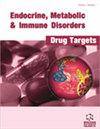药物基因变异可影响光学用药
IF 2
4区 医学
Q3 ENDOCRINOLOGY & METABOLISM
Endocrine, metabolic & immune disorders drug targets
Pub Date : 2023-12-19
DOI:10.2174/0118715303271934231211085226
引用次数: 0
摘要
导言单核苷酸多态性(SNPs)被用作代谢性疾病的药物易感性生物标志物。编码引发黄素单加氧酶 3(FMO3)的基因发生了改变,该酶参与舒林酸的代谢,也是导致遗传性代谢紊乱的原因。三甲胺尿症(TMAu,OMIM:602079)。DPYD 基因变异与二氢嘧啶脱氢酶缺乏症(DPD;OMIM: 274270)有关。这种常染色体隐性遗传代谢紊乱最终导致无法代谢氟嘧啶类药物,从而使接受此类药物治疗的患者产生严重毒性。研究方法某些药物的代谢途径中编码转运体或受体的酶的基因表达存在变异,这可能会影响个体对某些药物的反应,从而影响治疗反应和临床预后。因此,对变异基因进行测序和鉴定具有重要意义,不仅可以了解这些变异基因对疾病因果关系的影响,还可以了解负责药物代谢的编码酶所产生的副作用。研究结果研究发现,FMO3 基因中 c.472G>A(p.Glu158Lys)和 c.923A>G(p.Glu308Gly)多态性同源的患者不会出现息肉,因此对治疗家族性腺瘤性息肉病(PAF)具有保护作用。然而,在 DPYD 基因中,c.1905+1G>A(IVS14+1G>A)、c.1679T>G(p.Ile560Ser)、c.2846A>T(p.Asp949Val)e c.1236G>A/HapB3 变异在接受氟嘧啶类化疗的癌症患者中可能是致命的。结论对药物机制的了解会影响患者对特定药物的治疗反应。因此,药物遗传学是个性化医疗的重要工具,因为分子研究可以让临床医生预测某些药物的疗效和毒性,从而提高个性化治疗的效率,并改善患者的安全性。从个体化医学的角度来看,研究药物的特性及其代谢部位、参与药物代谢酶编码的基因将是非常有意义的。本文章由计算机程序翻译,如有差异,请以英文原文为准。
Pharmacogenetic Variants Can Influence Optical Medication Use
Introduction:: Single Nucleotide Polymorphisms (SNPs) are used as drug susceptibility biomarkers in metabolic diseases. Alterations in the gene encoding triggers the enzyme flavin monooxygenase 3 (FMO3), involved in the Sulindac metabolization, which also is responsible for the inherited metabolic disorder. Trimethylaminuria (TMAu, OMIM: 602079). DPYD gene variants are associated with the enzyme dihydropyrimidine dehydrogenase deficiency (DPD; OMIM: 274270). This autosomal recessive metabolic disorder, ultimately leads to the inability to metabolize fluoropyrimidines, which causes severe toxicity in individuals treated with these drugs. Methods:: Variants in genes responsible for the expression of enzymes that encode transporters or receptors involved in the metabolization pathways of certain drugs may condition the individuals response to certain drugs, compromising the therapeutic response and clinical prognosis. Thus the sequencing and identification of variants become relevant, not only gain knowledge on effects of these variants’ on disease causality but also in terms of its side effects resulting from the coding enzymes responsible for drug metabolization. Results:: It was found that patients with the c.472G>A (p.Glu158Lys) and c.923A>G (p.Glu308Gly) polymorphisms, in homozygosity, in FMO3 gene did not develop polyps, thus have a protective effect in the treatment of Familial Adenomatous Polyposis (PAF). However, in the case of the DPYD gene, c.1905+1G>A (IVS14+1G>A), c.1679T>G (p.Ile560Ser), c.2846A>T (p.Asp949Val) e c.1236G>A/HapB3 variants can be lethal in cancer patients indicated for fluoropyrimidine-based chemotherapy. Conclusion:: Knowledge on the drug mechanisms will affect the therapeutic response of patients treated with a given drug. Thus, pharmacogenetics is an essential tool in personalized medicine, since molecular studies allows the clinician to predict the probability of efficacy and toxicity of certain drugs, resulting higher efficiency in individualizing treatment and also improving the safety of the patient. From a personalized medicine perspective, the study of the characteristics of the drug and its metabolization site, the genes involved in the encoding of enzymes responsible for its metabolization will be of great interest.
求助全文
通过发布文献求助,成功后即可免费获取论文全文。
去求助
来源期刊

Endocrine, metabolic & immune disorders drug targets
ENDOCRINOLOGY & METABOLISMIMMUNOLOGY-IMMUNOLOGY
CiteScore
4.60
自引率
5.30%
发文量
217
期刊介绍:
Aims & Scope
This journal is devoted to timely reviews and original articles of experimental and clinical studies in the field of endocrine, metabolic, and immune disorders. Specific emphasis is placed on humoral and cellular targets for natural, synthetic, and genetically engineered drugs that enhance or impair endocrine, metabolic, and immune parameters and functions. Moreover, the topics related to effects of food components and/or nutraceuticals on the endocrine-metabolic-immune axis and on microbioma composition are welcome.
 求助内容:
求助内容: 应助结果提醒方式:
应助结果提醒方式:


